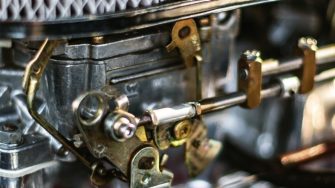
The Engine Research laboratory provides science-based engineering to resolve technical issues in car engines. We perform experimental research on fuels and combustion by using optical diagnostics, thermodynamic analysis, and fluid mechanics approach. Also, we conduct engine performance test to evaluate and implement new ideas and technologies. The work areas include gasoline/diesel engines, alternative fuels, and fuel-injection-equipment.
Facilities
The following facilities are currently available for the research and the engine performance test.
- Three sound-proofed engine test cells equipped with a range of EC dynamometers
- Emission gas analysers
- Fuel injection rate meter (Bosch-type)
- A single-cylinder small-bore diesel engine for performance tests
- Optical facilities for fundamental research including two optically-accessible engines (diesel and petrol) and constant-volume chambers.
Research Areas
- Development/implementation of advanced combustion regimes to optimise engine efficiency and exhaust emissions including soot, nitrogen oxides, carbon monoxide, and unburnt hydrocarbons.
- Test of alternative fuels combustion in an engine to acquire information of in-cylinder processes and exhaust emissions.
- Test of new fuel injection systems both in well-controlled chamber environments and in more realistic engines.
- Optical diagnostics to visualise spray, flow, pollutants and flames. High-resolution or high-speed images can be taken to understand physical processes.
Teaching
The laboratory runs experimental demonstration of thermodynamic cycle and engine operation for the courses such as Thermodynamics, Advanced ThermoFluids, and Automobile Engine Technology.
